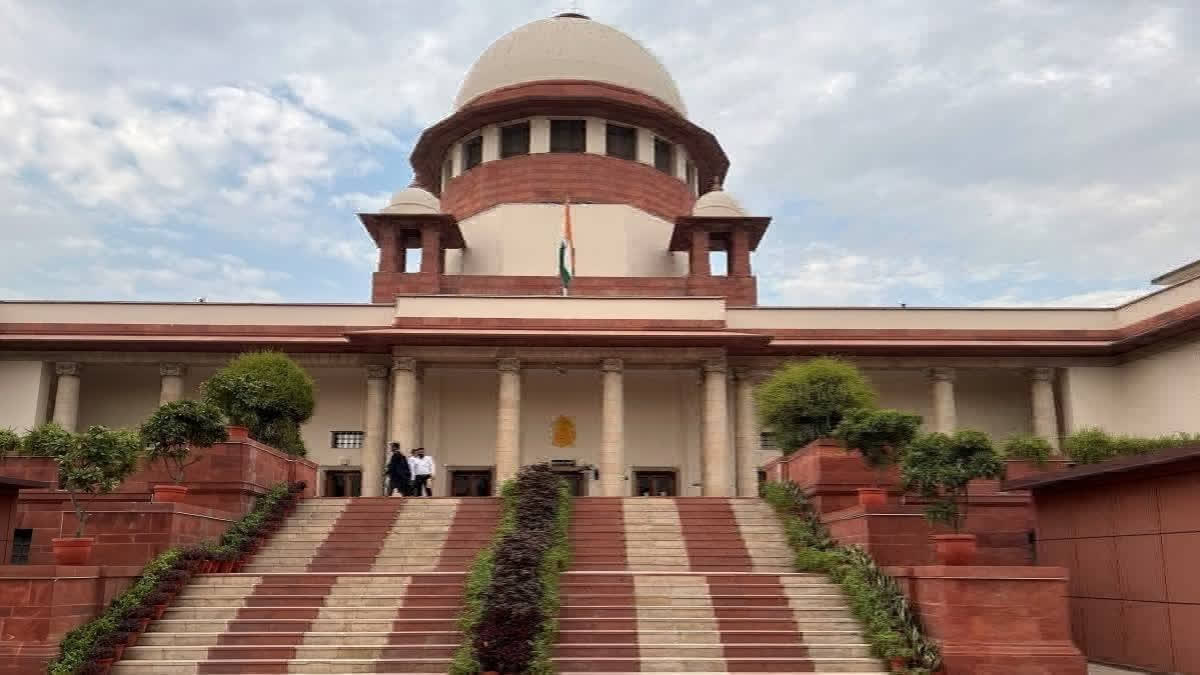New Delhi: The Supreme Court on Thursday approved the Shimla Development Plan 2041, which is aimed at regulating construction activities in Himachal Pradesh's capital city, saying "there are sufficient safeguards to balance the need for development while taking care of and addressing the environmental and ecological concerns".
A bench comprising Justices B R Gavai and Aravind Kumar said: "We have gone through the development plan. The development plan has been finalised after taking into consideration the reports of various expert committees and the studies undertaken with regard to various aspects including environmental and ecological aspects".
The Sukhvinder Singh Sukhu-government had approved the new plan in June 2023 and strongly defended it in the apex court. The bench clarified that it has not considered the development plan in minute detail and "upon its prima facie consideration, we have come to a view that there are sufficient safeguards to balance the need for development while taking care of and addressing the environmental and ecological concerns. We may however not be construed as giving our imprimatur to the said development plan".
The bench stressed that the development plan, which has been finalised after taking recourse to the statutory provisions and undergoing the rigors thereto, cannot be stalled in entirety thereby putting the entire developmental activities to a standstill.
The top court set aside the previous orders of the National Green Tribunal (NGT), holding that it was beyond the jurisdiction of the tribunal to direct the state government and its authorities to lay down a development plan in a specific manner.
The apex court said a need for maintaining a balance between the development and protection/preservation of environmental ecology has been emphasised by it time and again.
"It is thus clear that while ensuring the developmental activities so as to meet the demands of the growing population, it is also necessary that the issues with regard to environmental and ecological protection are addressed too", said the bench, in its 100-page verdict. The top court said that it would be open for the parties to challenge the finer points of the plan on their merits.
The apex court noted that the Himachal Pradesh government and its authorities perform legislative and quasi-legislative functions in prescribing a development plan.
Therefore, the bench added, that while it was open for the courts to examine such plans on merit, they could not direct the authorities to frame a plan in a particular manner.
"It is a settled law that the Constitution of India does not permit the courts to direct or advise the Executive in the matters of policy or to sermonize qua any matter which under the Constitution lies within the sphere of Legislature or Executive. It is also settled that the courts cannot issue directions to the Legislature for enacting the laws in a particular manner or for amending the Acts or the Rules. It is for the Legislature to do so", said the apex court.
The apex court made it clear that giving a direction or advisory sermons to the executive in respect of the sphere that is exclusively within the domain of the executive or the legislature would neither be legal nor proper. "The Court cannot be permitted to usurp the functions assigned to the Executive, the Legislature, or the subordinate legislature. The Court cannot also assume a supervisory role over the rule-making power of the Executive under Article 309 of the Constitution", it noted.
In a case connected with the Shimla development plan, the NGT had issued a slew of directions since 2017 while noting that unplanned and indiscriminate development in the core, non-core, green, and rural areas within the Shimla planning area had given rise to serious concerns relating to the environment and ecology.
In February 2022, the Shimla development plan was approved but it did not materialise owing to the NGT's stay orders in May 2022. The state government moved the apex court in appeal. In May 2023, the apex court asked the state government to decide on the objections received to the draft development plan and thereafter issue a final development plan within six weeks.
The court then clarified that the draft plan would not be implemented for a month from the date of publication of the notification nor would any fresh construction be permitted based on the draft plan.
In June 2023, the state government notified the new plan. The plan, named Vision 2041, included construction provisions in 17 green belts with certain restrictions and in the core area where construction was banned by the NGT, and a total of 22,450 hectares were taken into account for revision and formulation of the development plan. Guidelines regarding the number of stories, parking, attic, and height of the structures were also mentioned. The plan said that felling trees would not be permitted in green areas.
- " class="align-text-top noRightClick twitterSection" data="">
Read More
SC: How does it matter for the people whether AMU is a minority institution or not?
‘Though controlling voice is not of minority, yet it should be minority education institute’: SC


